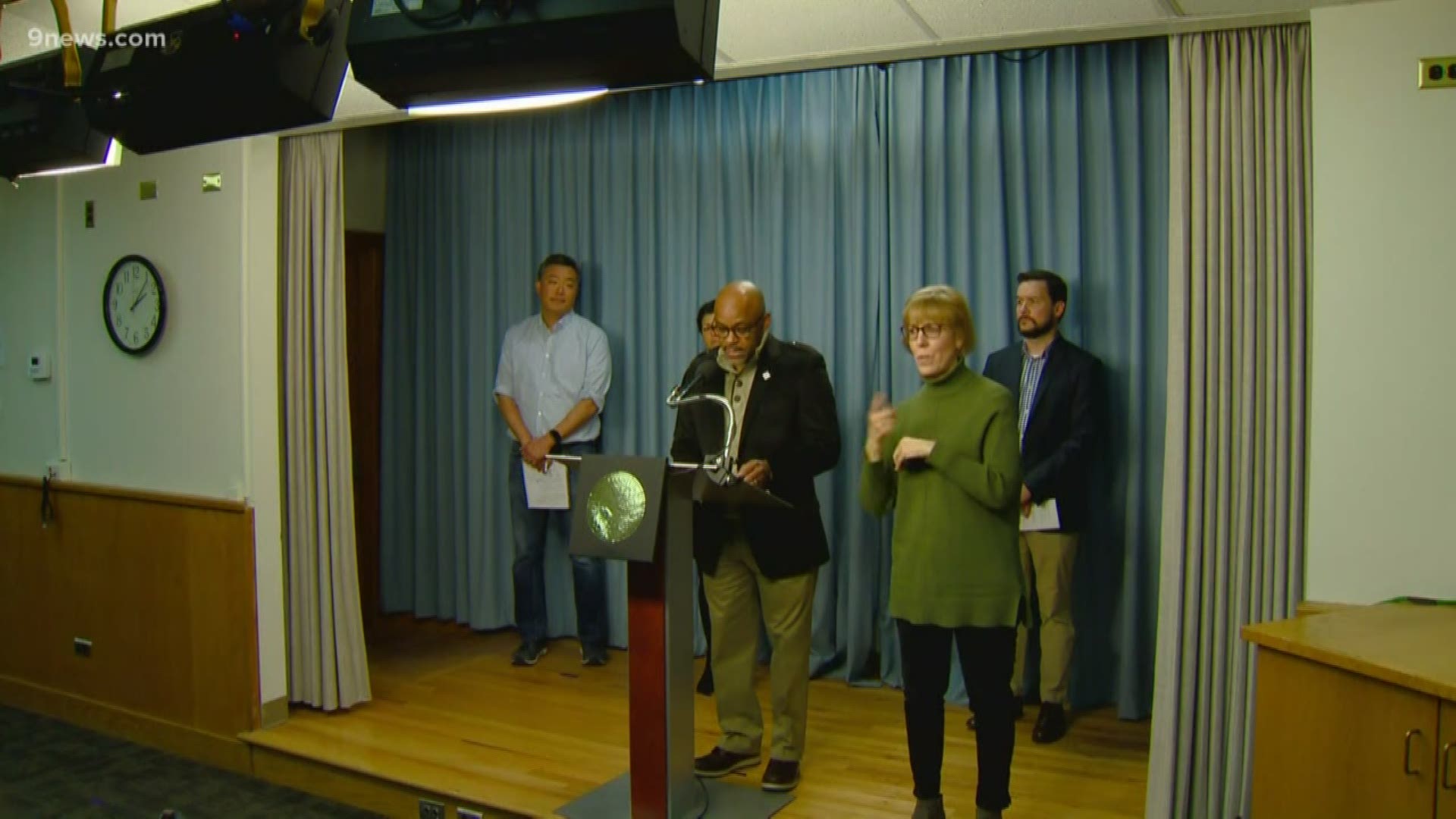DENVER — While Denver Mayor Michael Hancock emphasized he has not placed the city under a shelter-in-place order yet, he couldn't guarantee it wouldn't happen within 48 hours during a news conference that was held Thursday afternoon.
Hancock emphasized he'd rather see a lockdown like the one occurring in California's San Francisco Bay area occur on a regional level rather than simply within city boundaries.
“I have spoken to the governor and it’s also part of his toolbox of remedies or responses," Hancock said.
During Thursday's news conference, Hancock also announced the creation of a $4 million relief fund for small businesses and artists, who have essentially lost their livelihood due to the closure of restaurants and other gathering places in response to the novel coronavirus, COVID-19.
Hancock said the city will offer cash grants of up to $7,500 to small businesses and up to $1,000 for individual artists.
"There's a lot going on to keep the economy moving forward in the city of Denver," Hancock said.
Bob McDonald, the executive director of the Denver Department of Public Health and the Environment, said a potential shelter-in-place would be similar to what's occurring in San Francisco, and that while movement would be restricted for non-essential activities, people can still go on walks or head to the grocery store.
“It doesn’t mean that everybody in the next 48 hours should run out and panic-buy," McDonald said.
It comes one day after Gov. Jared Polis (D-Colorado) issued an executive order extending his state's closures at schools and ski areas.
In a news release that was distributed on Wednesday evening, Polis ordered all the state's public and private schools to cease in-person learning through April 17. This means that class will now be conducted entirely online for Colorado students.
The governor said his order also directs school systems to continue providing free and reduced lunch and breakfast to kids in need.
The governor also said he will also extend the closure of ski areas through April 6.
Health officials announced Colorado's first presumed positive case on Thursday, March 5. Since then, numerous other presumed positive cases have been confirmed. The results for anyone tested at a local level are considered “presumptive positive” until the CDC confirms the cases.
RELATED: Colorado COVID-19 cases: March 19-22
COVID-19 is a novel coronavirus that first appeared in Wuhan, China in late 2019. This new strain of coronavirus began popping up in the United States in February.
Symptoms of COVID-19 can include fever, cough and breathing trouble. Most develop only mild symptoms. But some people, usually those with other medical complications, develop more severe symptoms, including pneumonia, which can be fatal.
If you are feeling ill with symptoms similar to those associated with COVID-19 the Denver Department of Public Health and Environment (DDPHE) recommends the following:
Manage your symptoms at home the same way you manage other cold symptoms. To the extent possible, people with flu-like symptoms should remain at home.
If you need medical care, contact your primary care provider and schedule a visit. Let them know that you are concerned you might have COVID-19.
Only contact 911 for emergencies requiring immediate life-saving care and let them know if you are concerned you might have COVID-19.
Restrict visits to the hospital emergency room or urgent care - only individuals needing immediate care should visit these facilities. If you must visit an ER or urgent care facility, call ahead and let them know that you are concerned you might have COVID-19.
CDC's testing guidance includes three types of people:
Those who have symptoms such as fever OR lower respiratory symptoms (cough or shortness of breath) and have had "close contact" with a confirmed coronavirus patient within 14 days of their first symptoms.
Those who have fever AND/OR lower respiratory symptoms, require hospitalization and have traveled to areas impacted by the epidemic in the last 14 days.
Patients with fever and severe, acute lower respiratory symptoms who require hospitalization, and for whom no other diagnosis has been found — such as the flu. No travel or contact exposure is needed.
SUGGESTED VIDEOS: COVID-19 Coronavirus

